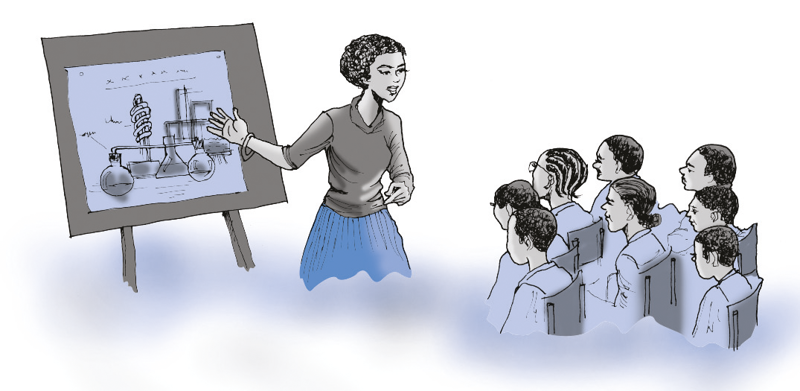Etiquette: Paying Attention
Paying attention is a vital listening skill that we need to consciously develop. We often miss out on instructions, details and important information because we are not paying sufficient attention to the speaker but have allowed our minds to wander from the matter at hand. It is true that our state of health, our surroundings and the delivery skills of the speaker, influence the way we pay attention. Nevertheless, developing and employing effective listening skills is crucial to our social and career lives and as such, deserves every effort we make.

In this lesson, we are going to look at some of the common attention detractors and how one can overcome them.
A person who is not paying attention may exhibit any of the following characteristics:
- doze-off in the middle of a talk
- keep fiddling and fumbling with things around them
- may start talking to the person next to them
- go into a trance and start day-dreaming.
Activity
In pairs
- Read through the list of possible attention detractors below.
- The room is hot and stuffy.
- You are hungry.
- The topic is boring.
- Two people close to you are whispering to each other.
- The speaker is inaudible.
- Someone passes a note with a funny message about the speaker.
- There is noise from a nearby room.
- Suggest possible solutions to the situations listed above and write the answers in your exercise book.
Share your solutions with the rest of the class when asked to do so.
How To Improve Your Skill In Paying Attention
We can improve the way we listen through preparation and skill. This means, getting prior information on a topic before listening to it. In this regard, we may focus on the topic by considering the following:
- What do I know about the topic?
If we feel we know a lot, we may not find it necessary to listen attentively. We therefore need to take note of the gaps existing in our knowledge of the topic and hope that the talk or lesson will provide information to fill these gaps. Other times, we feel we know very little about a topic and this may alienate us from the talk. In this case, we need to find some background information which will act as the springboard to our understanding of the talk of the lesson. - What would I like to know about this topic?
This will help to focus your attention. Should the information not be provided through the talk or lesson, you can seek for some reference from the speaker. - What dilemmas exist in the knowledge you have on the subject?
Often, topics have their areas of dispute for which no define direction seems possible.
Below are suggestions on how we can boost our attention during a talk or lesson.
- Maintaining eye contact with the speaker. This will help you to benefit from other non-verbal cues from the speaker.
- Noting how the speaker sign-posts his key points. He may use such expressions as ‘on the other hand’, ‘it is important to note’, ‘I cannot over emphasize’ and ‘but’.
- Using the day’s lessons, evaluate your attentiveness and fill in the table below.
Lesson | Attention boosters | Attention detractors | Solution to the detractors |
- Using the information from your day’s observation, write a paragraph on:
Inattentiveness and how to overcome it
